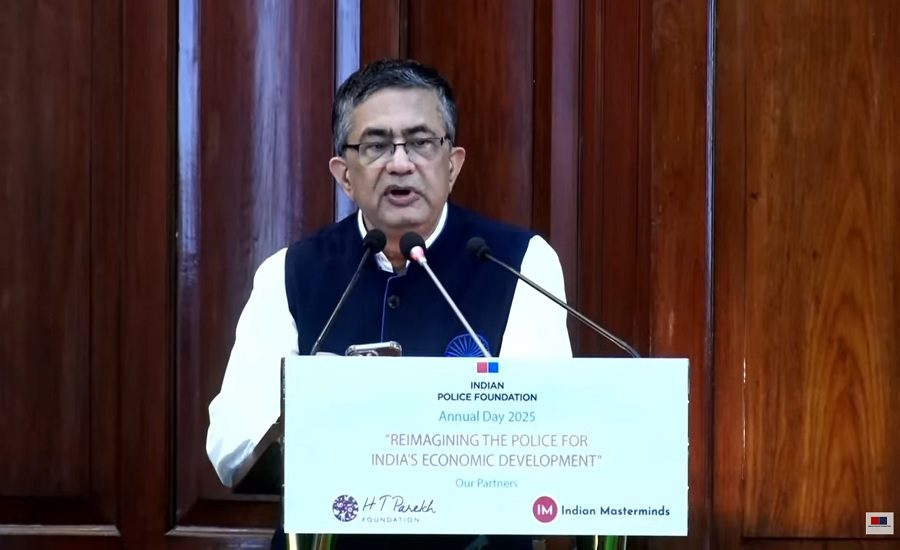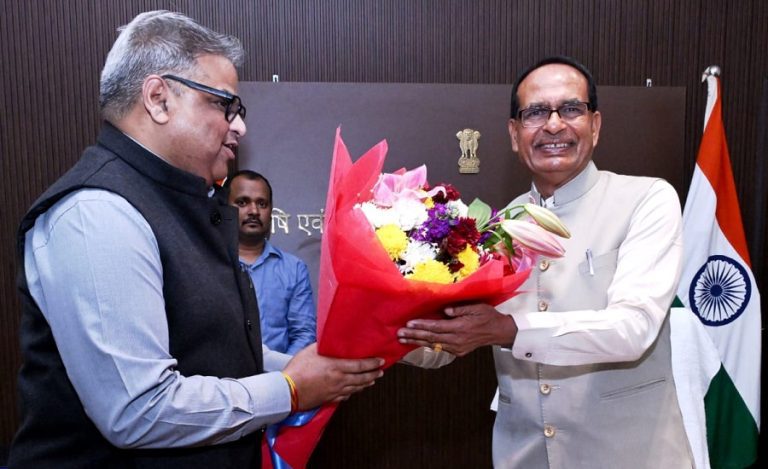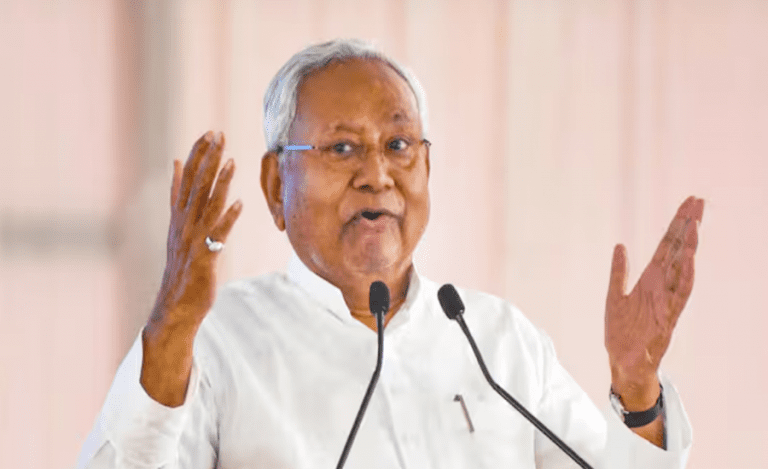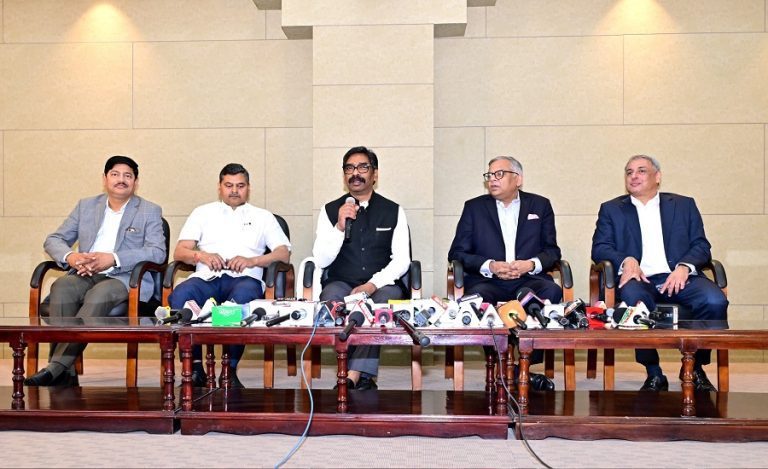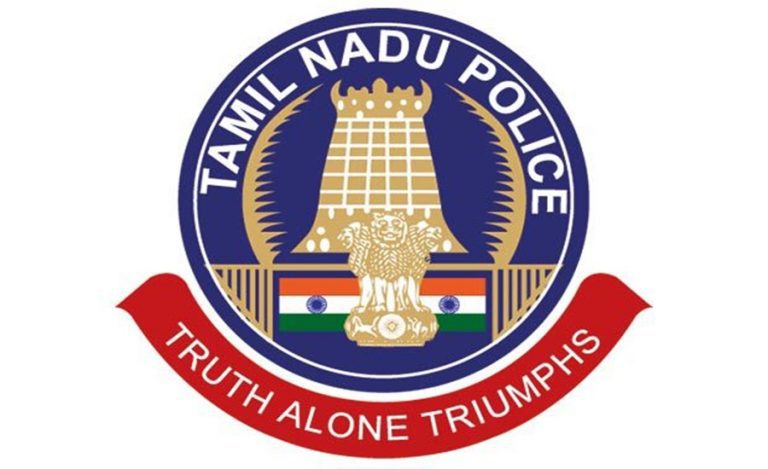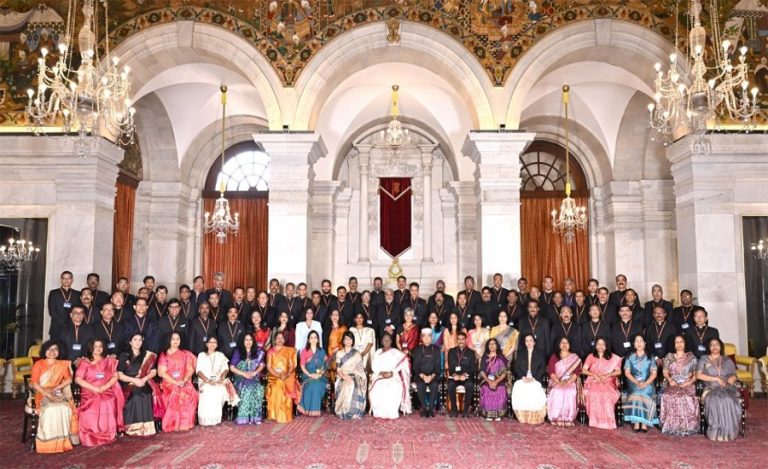The stock market has a pivotal role in India’s economic journey and the escalating cyber threats have been threatening the nation’s critical infrastructure. Mr Ashish Chauhan, Managing Director and CEO of the National Stock Exchange (NSE), delivered a powerful address and insightful address at the Indian Police Foundation’s Annual Day function in Mumbai on September 20.
His speech, peppered with historical context and futuristic warnings, resonated deeply with the assembled law enforcement professionals and dignitaries. Mr Chauhan employed a powerful analogy: “IT is like riding a tiger. We can’t get down. The ride may be very comfortable but it eats you up, the moment you disembark the tiger. IT is also something like that only.”
He began by illustrating India’s remarkable economic ascent, noting that the country’s total wealth represented by the stock market has skyrocketed from a mere ₹3.7 lakh crore in 1994, when the NSE commenced operations, to an impressive $5.2 trillion today.
This exponential growth, he asserted, has propelled India to become the world’s fourth-largest economy by wealth, with the stock market playing an undeniable key role in this transformation. “We have crores of investors, and we adapted,” he stated, emphasizing the dynamism of the Indian capital markets.
NSE’S UNIQUE MODEL
Delving into the unique nature of the NSE, Mr Chauhan clarified its dual identity: a vital public utility, yet also a private entity predominantly owned by private individuals, with over 75,000 private ownerships alongside a 31.3% stake held by Public Sector Undertakings (PSUs).
He underscored the exchange’s significant regulatory powers, stating, “We create and impose regulation; in that way, we are a state. You can even go against us with writs.” This highlights the exchange’s critical role in maintaining market integrity and governance.
The core of Mr Chauhan’s address, however, revolved around the pervasive and evolving challenge of cybersecurity. He eloquently articulated the obsolescence of physical borders in the digital age. “The borders are physical; all the competitors are physical. But with IT, we can’t identify anyone – where it is connected or linked,” he cautioned.
He painted a vivid picture of ubiquitous vulnerability, noting, “The borders are in our mobiles; the borders are in everyone’s hand now. Everywhere there is vulnerability; your television may be watching you. We should upgrade.”
CYBER-ATTACKS
He cited global instances of high-profile cyber-attacks, including those targeting powerful organizations and even the EU President for ransom, drawing parallels to incidents closer to home, such as the Mumbai power outage some years ago. Mr Chauhan emphasized that the NSE, being India’s highest IT infrastructure, is at the forefront of this digital battle.
“We are working for that,” he assured, while candidly acknowledging the inherent risks and threats they constantly face. He revealed that “there are people to hire, and they will work for attacking, also to protect,” referencing the sophisticated arms race in cybersecurity.
OPERATION SINDOOR
In a striking revelation, Mr. Chauhan shared an incident during “Operation Sindoor” – likely a reference to a specific security exercise or a period of heightened threat – where the NSE withstood a staggering 40 crore (400 million) cyber-attacks on its first day. He further disclosed that in scenarios of extreme security threats, the NSE might be compelled to restrict access to its website for foreign users as a protective measure.
He succinctly captured the irreversible and increasingly complex dependence on technology. He warned that not only the NSE’s systems but “whatever is connected to us will get affected by” cyber breaches, emphasizing the ripple effect of digital vulnerabilities across interconnected networks.
Mr Chauhan’s address served as a crucial reminder to law enforcement and policymakers alike about the silent but potent war being waged in cyberspace, urging a collective and continuous upgrade of India’s digital defenses to safeguard its rapidly growing digital economy.

